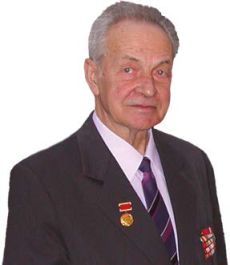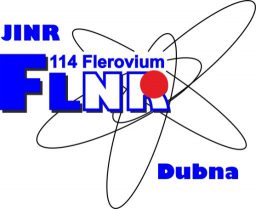Vadim Volkov 1923 – 2016
Vadim Volkov, a physicist at the Laboratory of Nuclear Reactions at the Joint Institute for Nuclear Research (JINR), Russia, passed away on 22 April aged of 93. Volkov entered Moscow State University in 1940. The following year he volunteered for military service at the front, and his crusade with the Soviet Army from Moscow to Koenigsberg saw him receive several medals. He fought in the Battle of Moscow near Volokolamsk and in the Battle of Kursk, in addition to battles for the liberation of Belarus and in fighting in East Prussia. When the war was over, Volkov resumed his studies at Moscow State University. In 1946 he married his high-school sweetheart Anna Guskova, and the pair were married for 70 years. Volkov;s PhD focused on studies of the deuterium-deuterium reaction. From 1956 he began working in Georgy Flerovв’s group at the Laboratory of Measuring Instruments of the Academy of Sciences, and from 1960 until his final days he worked in the Flerov Laboratory of Nuclear Reactions at JINR.

Vadim Volkov served in World War II just one year after beginning his studies.
As head of the group, he achieved a number of important scientific results that are cited to this day. He carried out pioneering studies on the transfer of a considerable number nucleons from one nucleus to the other, leading to the discovery of a new type of nuclear reaction between complex nuclei. These multi-nucleon transfer reactions were then used to produce new neutron-rich isotopes for the first time, with nearly 30 new isotopes synthesized in 2006. Volkov coined several terms that entered scientific literature: Q ground-ground (Qgg)
systematics, double-nuclear system and deep inelastic transfer reactions. He also developed a model of competition between complete fusion and quasi-fission, which was crucial for the later synthesis of heavy and superheavy elements. Volkov published more than 200 publications and two monographs, and in 1975 was honoured with the USSR State Prize for his groundbreaking research into the synthesis and study of new nuclei. He became the first Flerov Prize laureate in 1993 and was awarded the Russian Order of Honour in 2006. He was always keen to share his valuable life and scientific experience with young scientists, and his poise, self-discipline and optimism were highly appreciated by his colleagues. Vadim Volkov’s life is a vivid example of the contribution to the service of science, and we feel blessed to have known and worked with such a remarkable person and outstanding scientist.
(CERN Courier, Volume 56, Number 6, July/August 2016)
